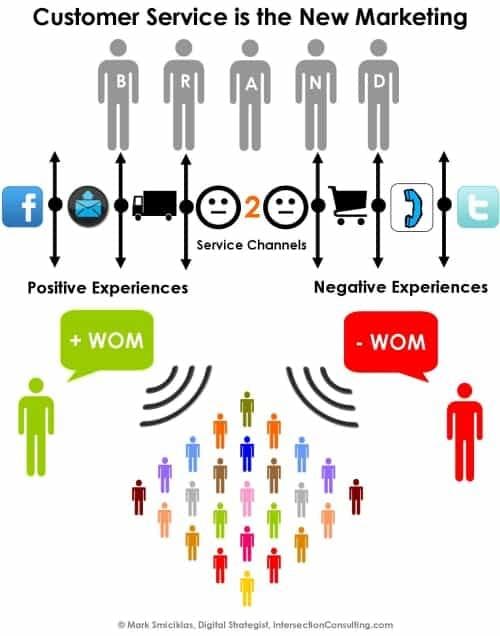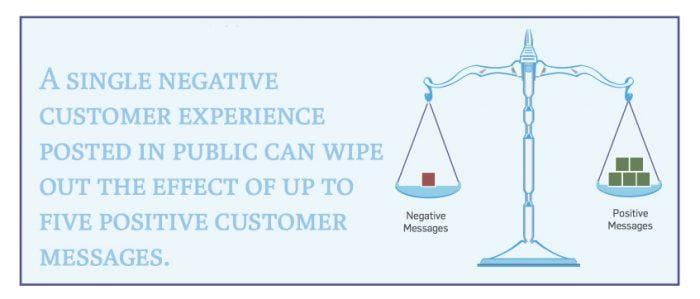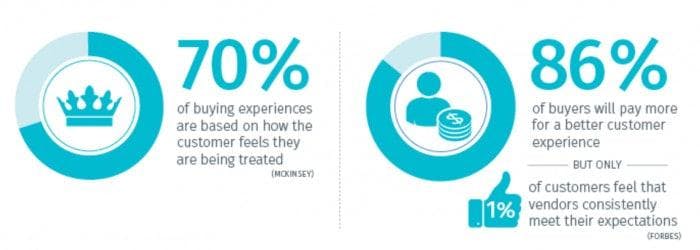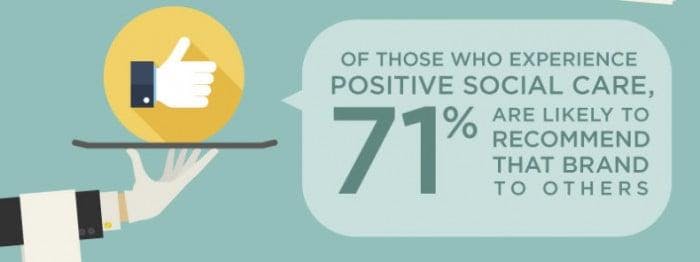We've all seen it happen. Social media mistakes that end in disaster.Whether it's an ill-timed post, poorly thought out joke, or a badly planned marketing campaign, crisis can strike anytime and anywhere.
Do you know how you'll recover when a social media disaster hits your business? In this episode of the Brand Authority Podcast, I tackle this topic.
Listen in and learn 6 actionable ways to put your response and escalation plan in place, including the exact steps to take during any social media disaster.
Subscribe to Brand Authority Podcast on iTunes
Highlights from episode 9
1. Assess the situation
When disaster strikes, a knee jerk reaction is never the right action. While your response time to a social media disaster is critical, it's important to first take a moment and assess the situation. Gather your team, discuss the problem openly, and answer a few questions.
- Who was harmed / injured / impacted?
- How many people were harmed / injured / impacted?
- Is the situation under control or is it an ongoing issue?
- What is being / has been done in response to the situation?
Once you've identified the who, what, and how, you can objectively review your next steps. Because believe me when I tell you, not all negative feedback is a disaster, and not all deserve the same response (if a reply at all).
For example, one person who can't access your website is very different than 25 incoming tweets about the same issue. It’s your job to look at the scope of what’s going on and determine whether the complaint is valid or if it’s just a hater on a “complaining streak.”
There's a lot of undeserved negativity on social, don't get sucked into that vicious cycle.
2. Maintain control of your emotions
Dealing with a social media disaster can take a huge toll on your emotions. Any negativity can feel like an attack. And that will make even the most reserved person want to lash out.
But before you do that, get your emotions in check. You're not looking to win the argument, but to come to a peaceful resolution. Don’t add fuel to the fire by responding with a negative tone or by immediately taking a defensive stance.
Choose to be in control of your emotions and attitude. Sometimes a positive and empathetic response can make all the difference.

Source: Intersection Consulting
3. Acknowledge the negative feedback
It’s horrible when negative situations unfold on social media, but it’s even worse when these are one-sided conversations: people complaining to a company who isn't even listening.
Negativity also has a tendency to "pile on" in social media. You've seen this happen where one negative comment attracts a dozen more. Don't allow that to happen to your company. Acknowledge the situation, and offer an empathetic and transparent response.
Whether your company is big or small, focus on humanizing your brand, your voice, and your response. Be honest and genuine. What are you doing to solve the problem, what steps have already been taken, what's going to happen now? The faster (and better) you address the situation, the less chance the negativity has to spread.

Source: Groove
4. Keep the conversation focused
During a social media crisis, it’s easy to let the conversation stray. Don’t let that happen - keep it focused on the issue at hand, as opposed to a perceived one. To do that, you need to be prepared.
Have a very clear understanding of the situation and know the exact process for resolution. Armed with that information, you can quickly and clearly articulate what's happening and next steps without losing focus.

Source: Clarabridge
5. Always work to find a resolution
Sometimes a negative response will be deserved, and the complaint valid, and sometimes it won’t be. Whatever the case, know that we're all human. Sometimes our response is correlated to an event that has nothing to do with your business.
Your social media follower is having a bad day and your latest post or tweet became the last straw. The good news is that you can be the one to turn that bad day around. As you respond, be humble, be helpful, and most of all - be sympathetic to the issue.
Let people know that you understand their problem and are doing everything in your power to find a resolution asap. Sometimes people just need an empathetic ear. Be that ear while doing everything you can to find a solution.

Source: Media Venue
6. Over-communicate and always follow up
While it's important to address complaints and respond appropriately, don't forget to follow up. That is a huge mistake that leaves the customer feeling abandoned and frustrated.
Sure, you need to immediately respond to the problem, but also have a system in place to come back and follow up. Tell people what’s happening and where you are in terms of solving their problem.
Circle back around to the social network where the complaint first happened. Meet people where they're at, giving them updates where they're most likely to look.
Final thoughts
I can’t stress enough that the key to handling a social media disaster is control. Controlling how you respond will help you keep things from escalating and may even give you a chance to turn it around.
So be prepared and get your plan in place. You may not be able to save every customer, but you'll certainly save more than you would by hiding behind social media. There's never a comfortable way to handle a disaster, but there is a right way. Make the latter decision your decision every time.
Subscribe to the Brand Authority podcast
People, Brands and Resources Mentioned:
CEO of Honigman Media Mike Allton,
CMO of SiteSell
About Rebekah Radice
Rebekah Radice, co-founder of BRIL.LA, has traded narcissism for purpose. When not driving growth, you'll find her tricking family into thinking she's Emeril Lagasse - likely covered in marinara. The spotlight was fun, but impact is better. These days she's using 20+ years of brand brilliance for good.
